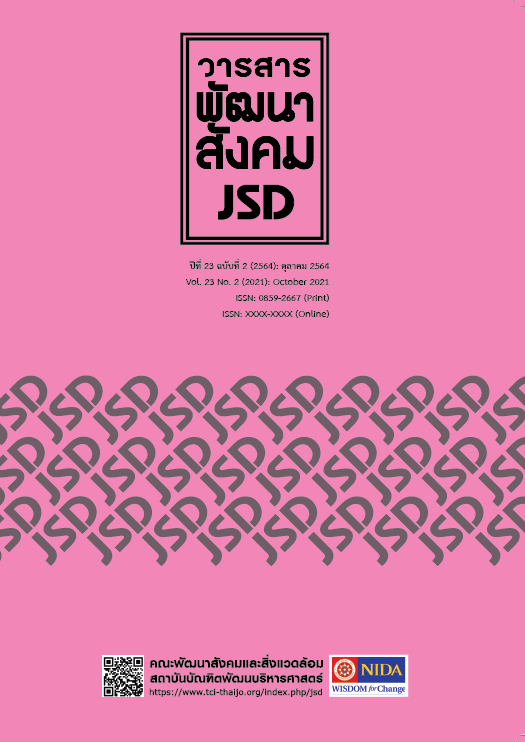Development of community participation process of partners group involved with community security along border in Sisaket Province to decrease an inequity by community-based
Main Article Content
Abstract
Article Details
References
Community Development Depart (2017). Empowerment in workshop documents. (In Thai). Bangkok: Community Development Department.
Internal Security Operations Command. (2018). The group activity report of Thai National Development Cooperators. (In Thai). Internal Security Operations Command Sisaket Province.
Audomtanateer, K. (2019). Summary of The Twelfth national Economic and Social Development Council Plan. (In Thai). Retrieved from https://www.iok2u.com/index.php/article/ logistics-supply-chain/352-12-2560-2564
King Prajadhipok's Institute (2002). The Development of Indicator for measuring good governance. (In Thai). Bangkok: King Prajadhipok's Institute.
Ponsri, S. (2004). Theory and Principle of Community Development. 5th ed. Bangkok: Indian store.
Ranapap, P. (2021). Reduce inequality Leading Thailand to Sustainable Growth. Retrieved from https://www.pier.or.th/wp-ontent/uploads/2021/03/aBRIDGEd_2021_006.pdf
Sangsuwan, A. (2015). Inequality. (In Thai). Bangkok: Institute of Academic Affair, The Secretariat of The House of Representatives.
Seanphuwa, E. (2013). Social Mind of the Community Leaders of Khoon Sub-district Municipality, Rasisalai District, Sisaket Province. (In Thai). Department of Arts and Sciences, Sisaket Rajabhat University.
Siaothong, T. (2010). People’s Participation in the Local – Village Level Administration: A Case Study of Takbai District, Narathiwat Province. (In Thai). Bangkok: Sukhothai Thammathirat Open University.
Sujarittanarak, W, et al. (2017). Social Capital Community Based Development in Social: Case study of central area. (In Thai). Pathumthani University Academic Journal, 9(2).
Yokjinda, W. (2014). Public participation in community development of thung krang village, tambon thapsai, amphoe pong nam ron, Chanthaburi province (Master’s Thesis). (In Thai). Burapha University, Chonburi.


